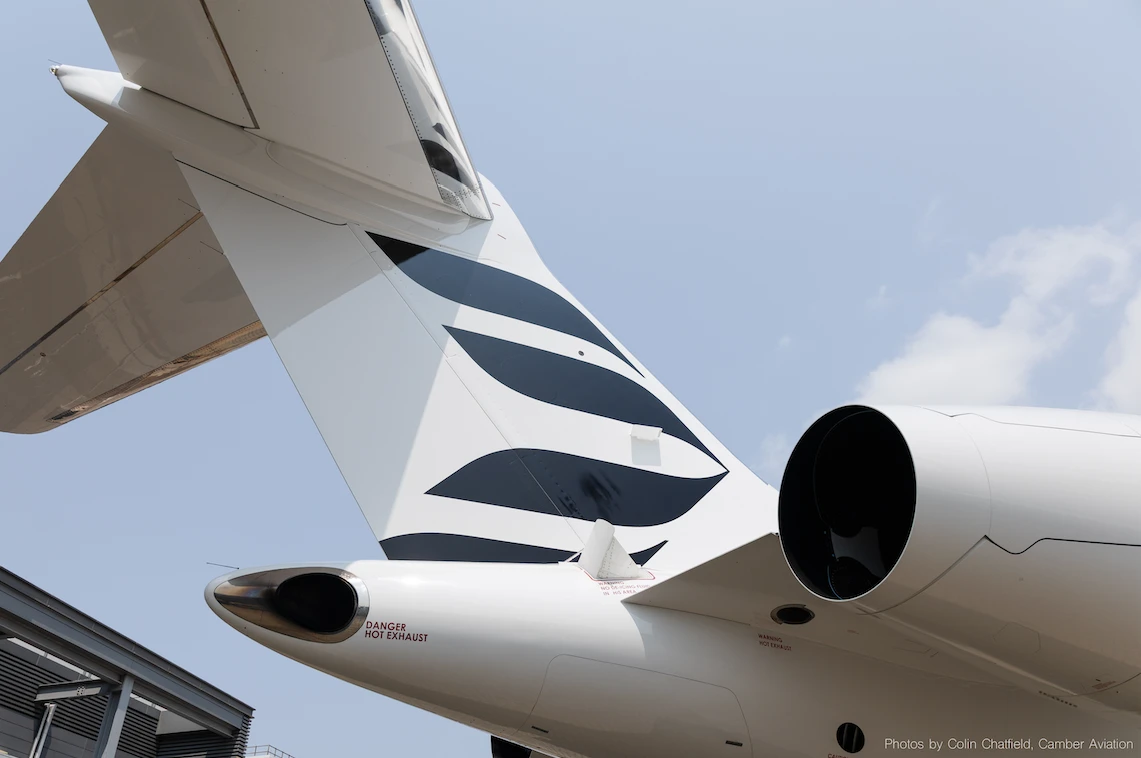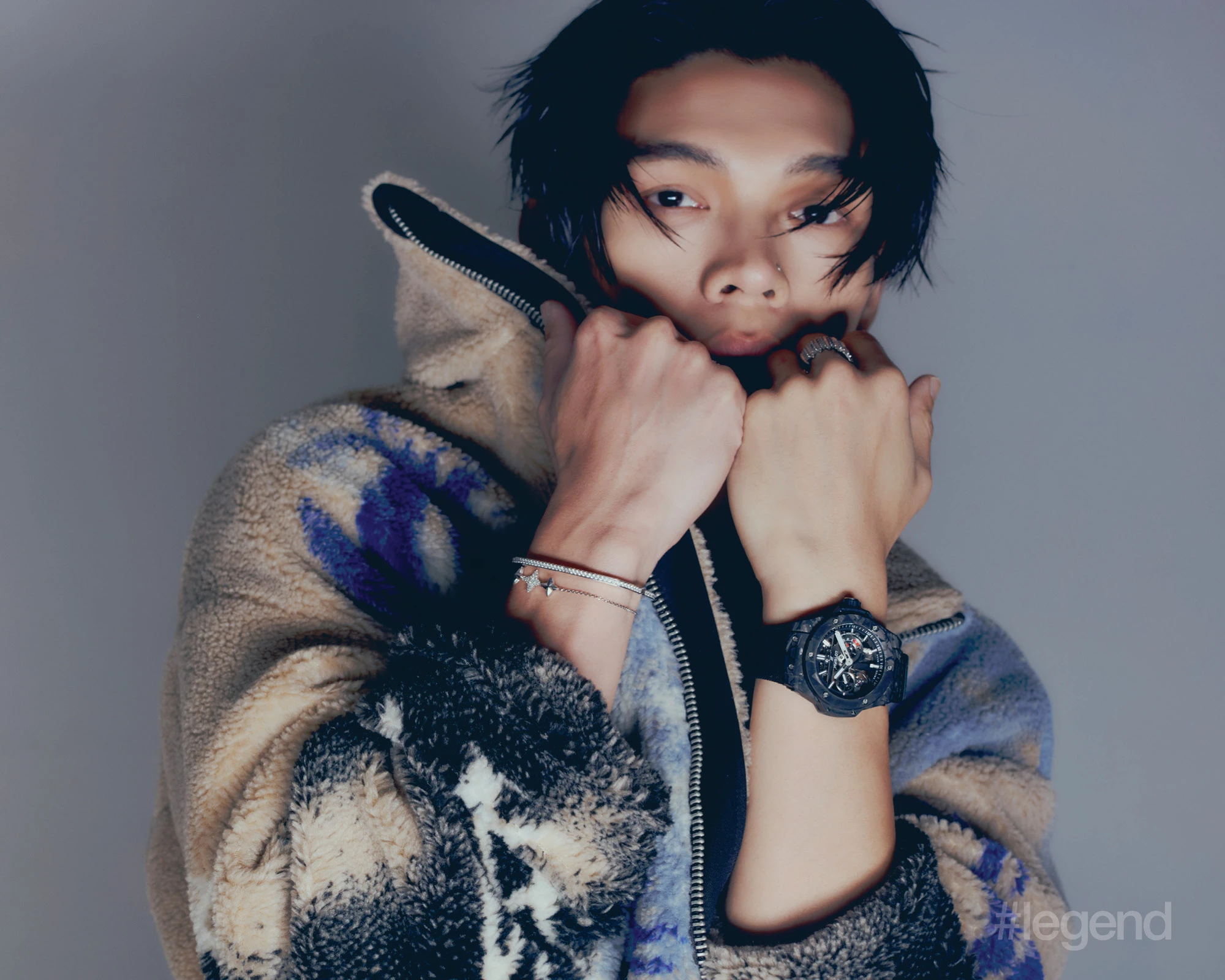El Bulli's Ferran Adrià Thinks Molecular Gastronomy Is a Myth
Mar 01, 2016
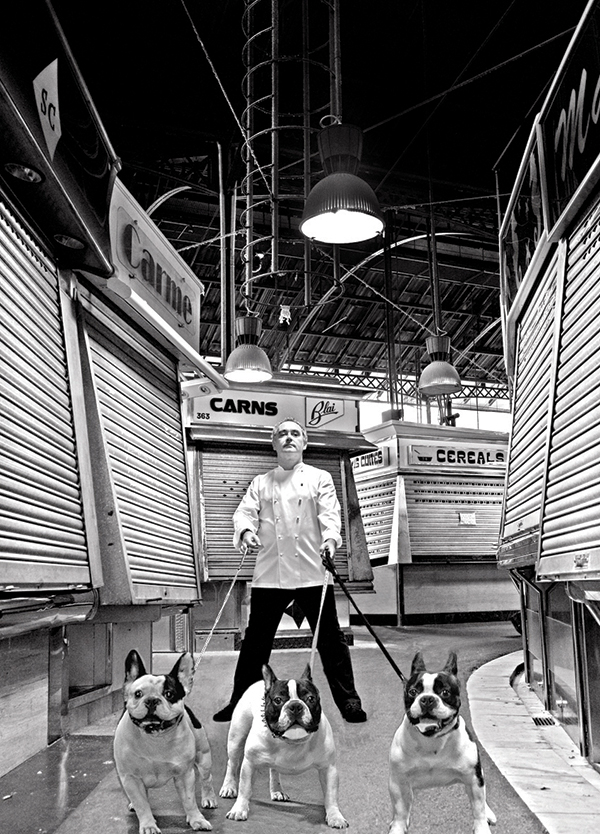
“Molecular gastronomy does not exist. It’s the biggest lie in the history of cooking.”
I’m not sure what I was expecting on meeting multi-accoladed Spanish Chef Ferran Adrià for the first time. Adrià is the man who gave us liquefaction, spherification, festoonations of foam on plates, electrolysers, centrifugal autoclaves and liquid nitrogen at El Bulli, hailed as the world’s best and most innovative restaurant until it shut in 2011. Adrià joined in 1984. But I certainly hadn’t expected his big reveal three minutes into our conversation at Landmark Mandarin Hong Kong’s two Michelin-starred restaurant, Amber.
“But…” I flounder, thinking his logic somewhat fishy, “aren’t you the apostle of molecular gastronomy?” We simultaneously wince and he spears me like the giant goof I am for parroting such a media mantra.
He fires back: “What is molecular gastronomy to you?” I’m about to get griddled, sizzled, and scorched by his compendious mastery of cuisine and my explicit lack of it.
Conversation with Adrià, it occurs to me, dangling off the precipice of his question, must be a lot like cooking with him – blitzscaling performance art, in which innovation and questioning are necessities and infinite.
“So we’ve been deceived for all this time,” is my defensive lob, lamely buying time to marshal my thoughts. My original question had been about the positive or negative legacy of molecular cuisine. Adrià’s response is declarative. “No one talks about molecular gastronomy at El Bulli. First and foremost, it never existed. And no one at El Bulli talks about molecular gastronomy today.”
Get it? Got it. Good.
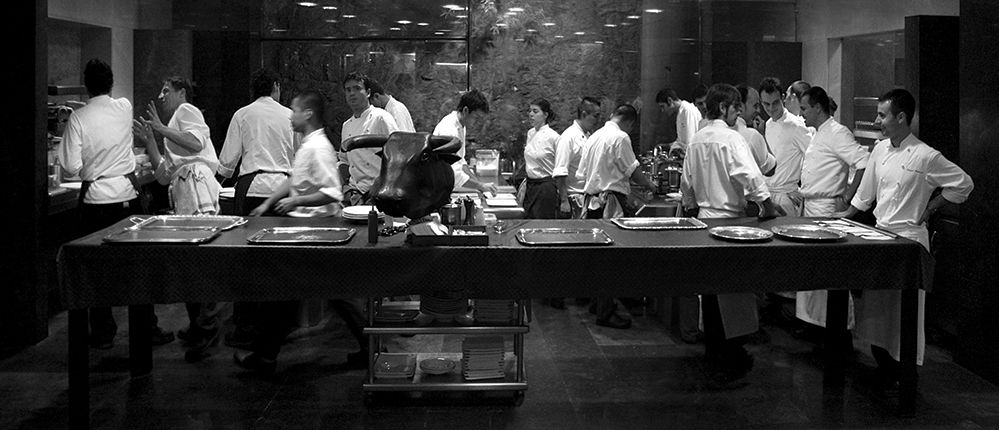
He emulsifies some more: “People have the wrong image of molecular gastronomy or an image of just a very specific part. But no one knows where in the world molecular gastronomy was created. It’s a very long story.” We have scheduled a 20-minute talk and suddenly the need is to explain 30 years of his cooking. So Adrià improvises and questions me instead. It’s more High Noon than haute cuisine.
FA: What would you say is El Bulli cuisine?
SS: Avant-garde.
FA: So how do you explain the evolution of El Bulli?
SS: In itself, or across global culture at large?
FA: No, just El Bulli. How to explain its evolution?
I stir-fry the first adjectives that come to mind: slow, intimate, wild, lawless, pantomime…
FA: Those are all metaphors. What was I doing when I came to El Bulli?
SS: Experimenting.
FA: Not at first. At first, I was doing nouvelle cuisine, because there was no other cuisine in the world.
SS: What about Japanese cuisine?
FA: In the Western world, in Western cuisine, there was only one type of cooking. It was traditional.
Adrià then explains how in 1987 he began to search for a path and says he has a “very significant book” to show me. “With that, it’s possible to understand the evolution. And how that evolution takes place,” he pronounces. It’s a book of his own nouvelle cuisine recipes, in German, which goes up to 1993.
FA: So what was the disruptive moment?
SS: The early 90s?
FA: Yes. It was 1994.
Phew.
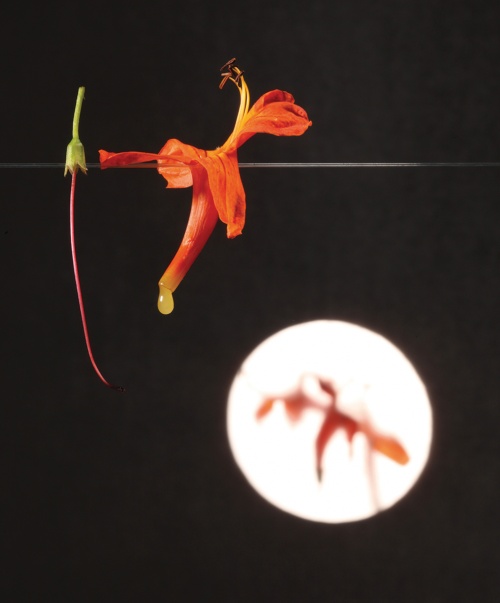
Adrià’s often called a pioneer, an apostle, so I quickly change tack and ask who his own cooking guru or gurus was or were around 1993. Who was his legend? “All the traders of nouvelle cuisine, all the people that made the change. I say this, because until we reach the final stage, it’s all an evolution. So to be able to explain it, here we were cooking based on a known language.”
“So what changed in 1994? I ask. “How did you disrupt the gastronomic status quo?” He’s off: “As of ’94, we began to create our new language with new words not even we knew. Oftentimes we made mistakes because we didn’t know how to speak the language yet. Bit by bit we acquired the language.”
I tell Adrià he and his team must have felt like savages in the kitchen of a new lexicon. “How were you able to see the new language without even knowing what it was?” I wondered. “How did you orient?” And then he throws an entire paragraph at me.
“We didn’t realise what we were doing. It was from ’94 to ’97 we built everything, but it wasn’t on an intellectual level. El Bulli is, above all, a philosophical place. All the stuff about science is rubbish. It had never been done. Never work with scientists. What we did was seek out experts. So if you read the book [and he points to Phaidon’s compendious seven-volume catalogue raisonné of all meals served at El Bulli from 2005 to 2011 which he’s promoting, above] from ’94 to ’97, it’s all philosophical cuisine.
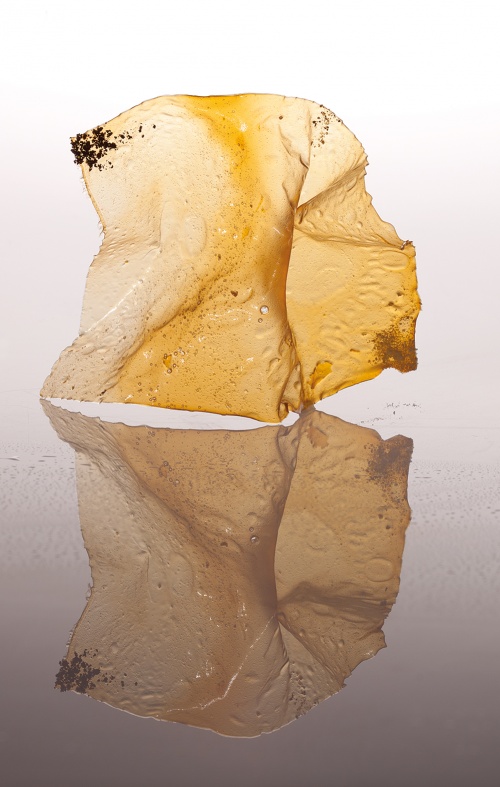
“So that’s the big problem with El Bulli nowadays. In a society that talks and talks and talks, nobody tells you these things. The very first molecular thing we did was in 1998, called hard gelatine. We conceptualised hot gelatine and it didn’t exist. But it did exist. Where did it exist? In Asia. So we made it with agar agar. The very first, what we call, molecular product is a Japanese product. And so, if you understand this, you see the problem.”
For which Adrià blames the French. “For four centuries, the French were the creators of everything in high cuisine. And they were the first to go to Japan but their cuisine was so important they didn’t see the need to mix. I once asked Joël Robuchon: ‘You’ve been to Japan so many times. Why haven’t you done more Japanese food or used its influence?’ ‘I don’t know,’ Robuchon said.”
Adrià turns on me again. “What was the first European restaurant to incorporate Japanese into their cuisine?” El Bulli, he tells me. Before I can digest or respond, he’s back with another question: “What is nitrogen?” A trick question, surely: it sounds too easy. “A gas,” I say. “No. A product,” he corrects me.
“A product just like water. But with nitrogen we were able to make cocktail sherbets. You could make a mojito sherbet with a lot of sugar and alcohol – but to claim that’s science? That’s a problem. Because 25 years later we’re still in the same place. In 1998 we were making cocktails into cuisine. That was the revolution. Everything that’s happening now with cocktails is linked to El Bulli. So why do we have this problem?”
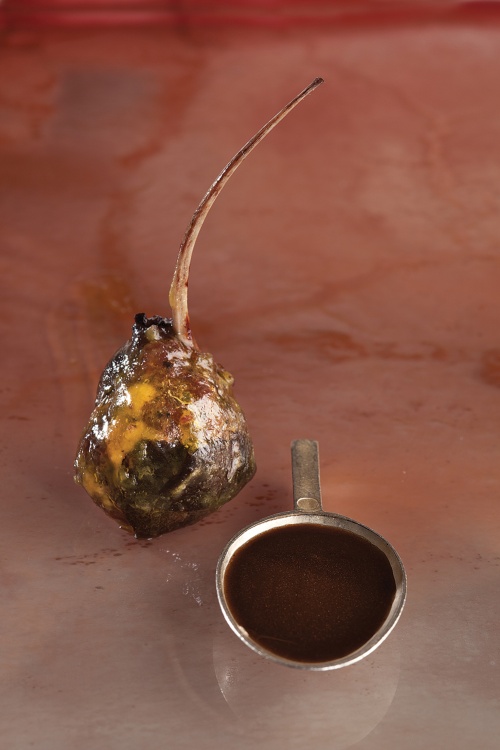
A game-changer for El Bulli was a story in The New York Times in 2003 based on Adrià and the advent of avant-garde cuisine in Spain. The story ran the headline: “The Nueva Nouvelle Cuisine: How Spain became the new France”. Suddenly all Manhattanites and their one-per-centered peer group craved a table at Adrià’s remote Spanish shrine. Adrià laughs at the thought. “It was a great name but nobody believed in it – certainly no-one in Spain. But before that story there was just El Bulli the restaurant. After that, it became the myth.”
I feel he’s languishing in nostalgia. “So where did the molecular term come from?” is how I whip him back on track. “It was a name given to us by scientists. Hervé This, French, wrote a book called Molecular Gastronomy and that triggered a great crisis and controversy in the world around El Bulli.”
I’ve met This and tell Adrià what a great mind he seems to have. “Yes, but he’s a rotten cook,” Adrià laughs. “He doesn’t know how to cook. He studies what happens to food when you do things to it.”
Adrià goes on to explain that by 2007, the adjective “molecular” had become pejorative. “The world must be full of idiots because everything is chemical. And that’s as far as it got.” He mentions a book in Spanish, The Kitchen of the Brave by Pau Arenos, which uses the term “techno-emotional” to describe cuisine, one he says is preferable to “molecular”, but will never catch on.
And then another big reveal: “Almost 30 years on, we’re living in a world of nouvelle cuisine, but nobody knows what it is yet. We don’t have a name for it. And I’ve never seen an article written about this subject before.”
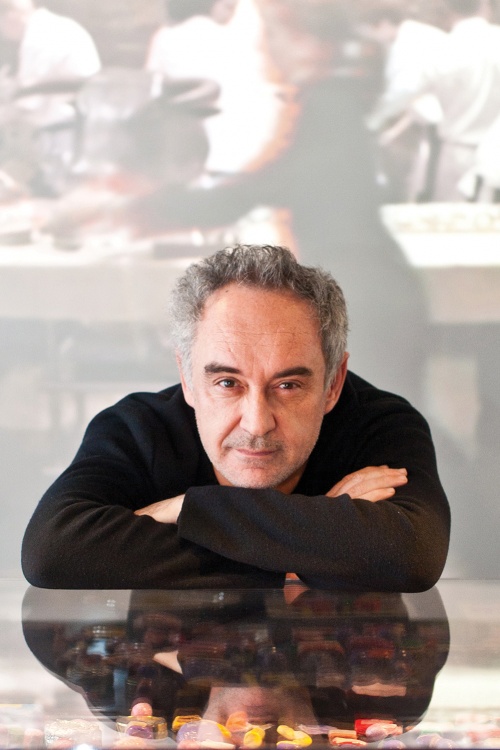
I ask if synthetic food will ever become a trend, or a constant, thinking of This. “Hervé has done nothing with cooking. Chemists are physicists or food technologists. People don’t really know what is science. They confuse it with physics and chemistry. But science is an attitude, an empirical study.
“It’s knowledge made empirical, which is almost impossible to do with cuisine. We had to spend a year testing how to cook a lobster. There is a scientific attitude, but the entire industry is scientific.
“We are artisans. And in artistry, science is nearly impossible. And if we talk about chemistry and physics, everything is chemistry and physics. We didn’t know at El Bulli how to tell this story. And that’s why I set up the foundation.” And produced the book.
My watch reads 23 minutes and we’ve done 30 years.
I ask what the foundation’s been doing for five years and what Adrià’s ambitions are. More disruption, the advent of a new avantgarde language? “I’m hardly ever talking about cuisine nowadays,” he says. “I’m in places like Harvard talking about invention, innovations. I’m hardly involved.
“When I decided to close the restaurant, I decided to step out of the world of gastronomy, or not so much the world, but the gastronomic establishment and its Michelin stars. So now we’re working to order all the languages that have existed in haute cuisine.”
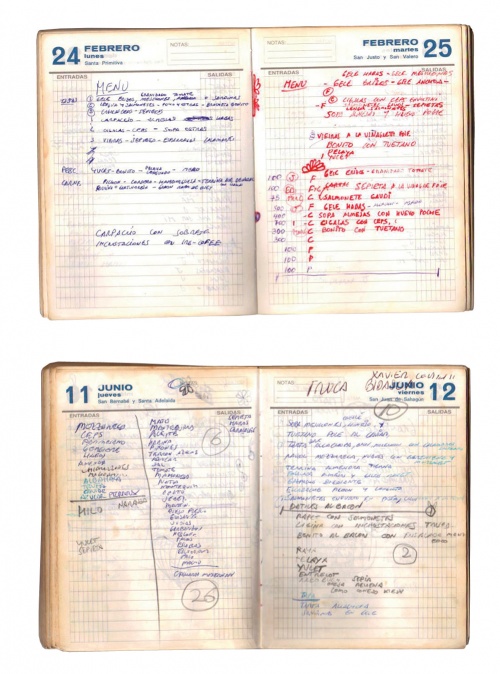
The El Bulli beast burnt out Adrià, and the upshot has been a new-found fascination with civilisation, culture and the history of food. He’s gone from micro to macro. He picks up the German book again. “This book – about Spain, Italy, Greece and cooking – now I see it as civilisation.” And high noon – at high speed – starts again. “Where does beer come from?” I shake my head. “It’s not German or Belgian…it’s Egyptian. So that blows everything out of whack. Oil is not Italian, it’s from ancient Greece. That’s what we’re working on now.”
He’s also tipping Peruvian cuisine as the next big thing. “You have to contextualise. I discovered Peru in 2011 and no one talks about it. We produced a documentary about Peru’s cuisine as a social vehicle. There are 80,000 culinary students in Peru. And the avant-garde of the last five years are cultural. The Incas, the Aztecs, it’s a millenary culture you’re seeing.”
And with that breathless possibility, the hyperactive Adrià stands up, shakes hands and strides forth, stalked relentlessly by a patch of the limelight and the shadow of legend.
















